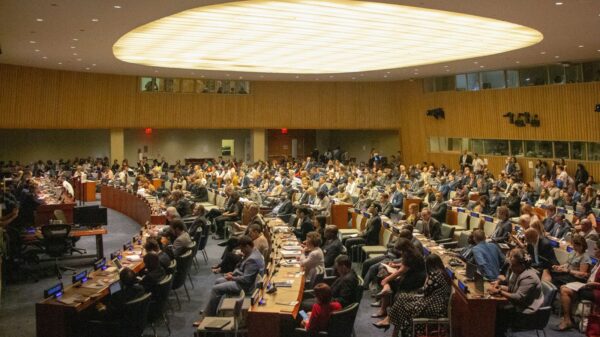
With labor unions and workers around the nation and world taking action to demand increased labor rights, over 75,000 Kaiser Permanente Union employees recently joined together to orchestrate the largest healthcare strike in U.S. history.
Kaiser Permanente and a coalition of unions reached a new temporary deal on Oct. 13, ending the labor dispute. The new agreement seeks to address staffing shortages with raises that will amount to 21% in wage increases until 2027, in order to help retain current workers.
Kaiser Permanente, one of the largest healthcare organizations in the nation, reached tentative agreements with more than 11 unions last month, ending the healthcare worker strike for many employees, however, two unions currently remain on strike. Members of the Kaiser Permanente coalition of unions fought for safer working conditions and a significant pay increase for employees as reported by CNN.
Kaiser pharmacy workers have continued to strike since Oct. 23, with plans to continue the strike until Nov. 18. Over 500 imaging workers at five Kaiser locations in Oregon and Washington joined the strike on Nov. 1, according to Forbes and the workers’ union United Food and Commercial Workers Local 555.
Deborah Patrick is a freshman biology major at Howard University and originally from New Jersey, who shared her thoughts on the strike.
“With the physical, mental, emotional and financial stress these workers are dealing with, they deserve more pay and more staff,” Patrick said.
While the Kaiser Permanente strike illuminated some of the common struggles healthcare workers experienced in 2023, some of the issues that caused the Kaiser strike stem from national and global issues caused during and exacerbated by the COVID-19 pandemic, where the mental health crisis was at an all-time high.
According to a report by advocacy and research group Mental Health America, during the pandemic, 93% of health workers reported feeling stressed between June and September 2020, while 86% experienced anxiety and 76% reported burnout.
While the COVID pandemic forced hospitals to deal with years of staff shortages and scores of sick patients, the problem of burnout preceded the pandemic and still remains, based on a recent study by the Centers for Disease Control and Prevention.
Approximately 50% of healthcare workers experienced burnout in 2022, a significant increase from the 32% reported in 2018, according to the CDC study. According to a study conducted in early May by McKinsey Healthcare, around 31% of nurses have considered leaving their jobs due to lack of support from higher authorities, wage issues and stress.
In addition to emotional, psychological and physical health issues that were worsened by the global pandemic, economic challenges simultaneously emerged that affect health workers around the nation. Forbes reported that since last year, the cost of living increased by 9.1%, although it has decreased to 3.7% within this year, which also impacted healthcare employees.
Oluwatobi Aderotoye, an alumna of Howard University who is originally from Prince George’s County, Maryland, commented on the aspect of burnout as it relates to the strike.
“Often, we see burnout happen to our healthcare professionals as well as anyone in the service industry,” Aderotoye, a current Howard graduate student who is studying chemistry, said.
Although workers in Washington D.C. and its surrounding states went on strike for one day while western states went on strike for three, as reported by The Guardian, the length of the strike did not reduce the impact the strike had around the nation.
The CDC plans to address growing healthcare issues and worker mental health by introducing an initiative to help doctors and nurses deal with burnout as announced in late October.
Copy edited by Alana Matthew













